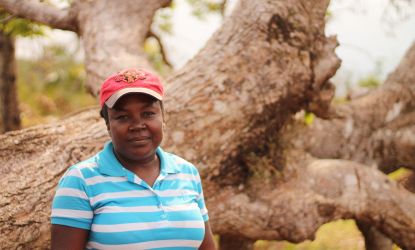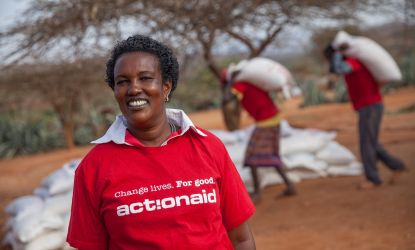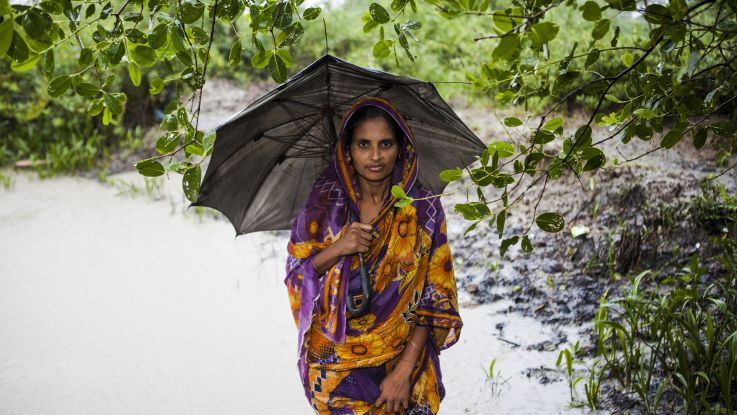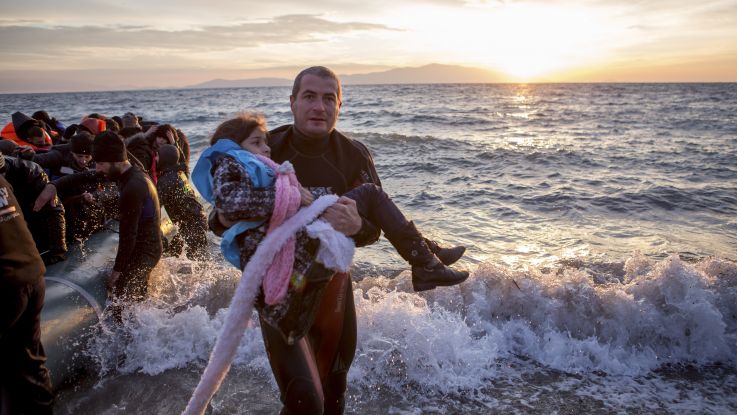Women’s leadership in humanitarian crises

Ismene took on a leadership role following Hurricane Matthew
ActionAid
Women’s leadership in Haiti
Ismene, left, worked with ActionAid on protection and engineering during the response to Hurricane Matthew in October 2016.
"I am a civil engineer and a social worker. And I am also a militant feminist!" she told us. "Today I am supervising the building work at the site of the Abricots' Women’s Friendly Space. I supervise the building overall – seeing what progress has been made, what problems to address, evaluate their work."
After a catastrophe there is often more violence, especially gender-based violence and sexual violence. There is also more discrimination against women. Therefore it’s very important that women know how to respond."
"I don’t see myself as a ‘symbol’ when I work as an engineer. I am just doing my job," she says. "Yes, it’s important to do more work in this area so that we see more women engineers. But I concentrate more on doing the job than focusing on my gender."
How we work to advance women’s leadership in emergencies
- We promote women's engagement as leaders so that their voices are heard directly at all levels of decision-making.
- We work with women's organisations to promote protection in disasters, including providing safe spaces for women. Safe, inclusive, women-only spaces offer more than just refuge: they can foster women’s leadership, agency, and collective capacity to challenge violence and abuse in times of crisis.
- Most of our emergency responses include cash grants or livelihood programmes which increase women’s access to resources. Where women control resources, their status and influence in the community increases.
This approach helps to create long term change in transforming gender relations in communities. By opening the space for women's leadership alongside men, our approach supports women’s empowerment and the transformation of women’s positions in households and communities.

Luijah, who has worked for ActionAid for 10 years, coordinates the Food for Assets programme in Kenya.
Alice Oldenburg/ActionAid
Women leading food distribution in Kenya
Luijah has worked for ActionAid Kenya for 10 years.
She coordinateed the Food for Assets programme which helped approximately 1,800 families during the East Africa food crisis. The programme supported the most vulnerable women by providing them with food rations for their families, in return for working 12 days a month on projects that help the community.
I feel great about being a strong female leader in the community,"
"With Food for Assets, women are becoming more empowered in their household, they are managing the food. Men used to be in charge of the money so women didn’t have control."
Women ran all aspects of the programme, from Luijah's role in managing the food distribution, to the committee of local women who logged the work carried out and measured out the food and also a complaint committee within the communities to handle any issues.
“I’ve seen lots of changes in the communities, women want to work and gain independence. Women are more empowered and able to support their families."
Page updated 6 February 2025



